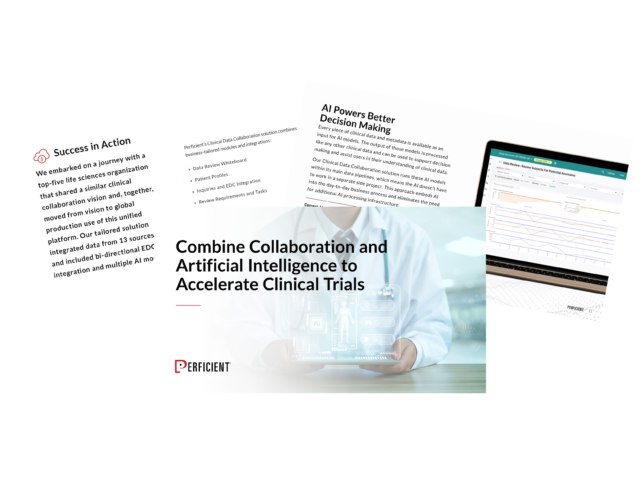Clinical trial data management is critical to pharmaceutical research, yet it remains a significant challenge for many organizations. The industry faces several persistent hurdles:
- Data fragmentation: Research teams often struggle with siloed information across departments, hindering collaboration and comprehensive analysis.
- Outdated systems: Many organizations rely on legacy data management tools that fail to meet the demands of modern clinical trials.
- Incomplete or inaccurate data: Ensuring data completeness and accuracy is an ongoing battle, potentially compromising trial integrity and patient safety.
- Limited data accessibility: Researchers frequently lack efficient ways to access and interpret the specific data relevant to their roles.
- Collaboration barriers: Disparate teams often struggle to share insights and work cohesively, slowing down the research process.
- Regulatory compliance: Keeping up with evolving data management regulations adds another layer of complexity to clinical trials.
These challenges not only slow down the development of new treatments but also increase costs and potentially impact patient outcomes. As clinical trials grow more complex and data-intensive, addressing these pain points in data management becomes increasingly crucial for researchers and product teams.
A Unified Clinical Trial Data Management Platform
Life sciences leaders are engaging our industry experts to reimagine the clinical data review process. We recently embarked on a journey with a top-five life sciences organization that shared a similar clinical collaboration vision and, together, moved from vision to global production use of this unified platform. This cloud-based, client-tailored solution leverages AI, rich integrations, and collaborative tools to streamline the clinical trial data management process.
Key Features of Our Client-Tailored Clinical Data Review Solution:
- Data Review Whiteboard: A centralized module providing access to clean, standardized data with customized dashboards for different team needs.
- Patient Profiles: Easily track individual trial participants across multiple data domains, ensuring comprehensive patient monitoring.
- EDC Integration: Seamlessly integrate Electronic Data Capture system queries, enabling interactive conversations between clinical team members.
- Study Setup: Centralize and manage all metadata, facilitating efficient study design and execution.
- AI-Powered Insights: Leverage artificial intelligence to analyze vast amounts of clinical trial data, automatically identify anomalies, and support improved decision-making.
The Impact: Enhanced Collaboration and Faster Results
By implementing our clinical trial data management solution, organizations can:
- Ensure patient safety through comprehensive data visibility
- Break down data silos, promoting collaboration across teams
- Accelerate the development of new treatments
- Improve decision-making with AI-driven insights
- Streamline the clinical data review process
Breaking Down Clinical Data Siloes for Better Outcomes
Leveraging a modern, cloud-based architecture and open-source technologies to create a unified clinical data repository, the clinical data review solution takes aim at the siloes that have historically plagued the clinical review process. By breaking down these silos, researchers can avoid duplicating efforts, share insights earlier, and ultimately accelerate the development of new treatments.
AI Drives Clinical Data Insights
Clinical trials produce vast amounts of data—all of it useful, but potentially cumbersome to sort and examine. That’s where artificial intelligence (AI) models can step in, analyzing and extracting meaning from mountains of raw information. It can also be deployed to automatically identify anomalies, alerting researchers that further action is needed. By embedding AI directly into its main data pipelines, our tailored clinical data review solution effortlessly supports improved decision making.
Data Puts Patients First
Patient safety must be the number one concern of any ethical trial, and clinical research data can play a key role in ensuring it. With a clinical data hub offering unparalleled vision into every piece of data generated for the trial – from lab results and anomalies to adverse reactions, – teams can track the well-being of each patient in their study. Users can flag potential issues, making it easy for collaborators to review any concerns.

Success In Action
Our tailored solution for a top-five life sciences leader integrated data from 13 sources and included bi-directional EDC integration and multiple AI models. Our deep understanding of clinical trial processes, data management, and platforms proved instrumental in delivering a solution that met—and exceeded—expectations.
Want to know more about our approach to clinical trial data collaboration? Check out our guide on the subject.
Transform Clinical Data Review With An Expert Partner
Discover why the largest life sciences organizations – including 14 of the top 20 pharma/biotech firms, 6 of the top 10 CROs, and 14 of the top 20 medical device organizations – have counted on our world-class industry capabilities and experience with leading technology innovators. Our deep expertise in life sciences and digital technologies, including artificial intelligence and machine learning, helps transform the R&D process and deliver meaningful value to patients and healthcare professionals.
Contact us to learn about our life sciences and healthcare expertise and capabilities, and how we can help you transform your business.
Empower Healthcare With AI-Driven Insights

